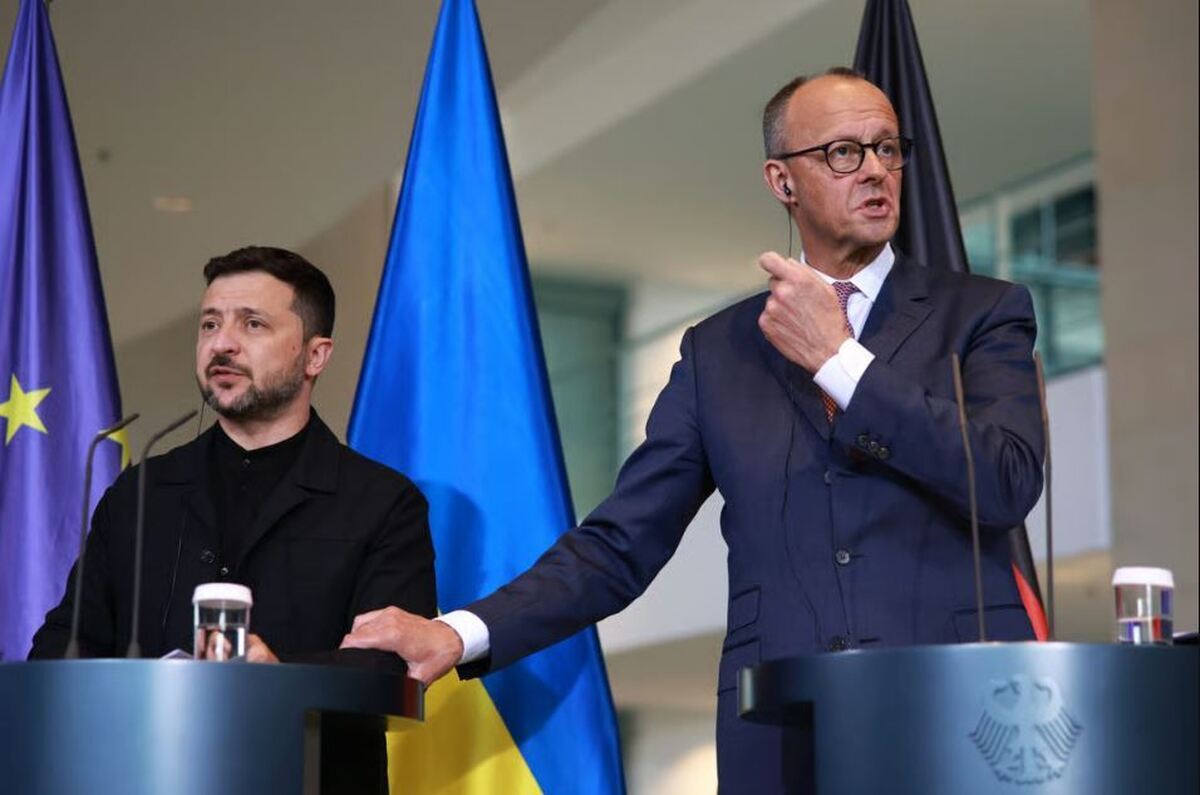A dangerous gamble by Merz

The German government has intensified its interventionist approach in the Ukraine war. Berlin’s current posture is being perceived by Moscow as direct involvement in the conflict, which could have serious security repercussions for Germany.
Before the Ukraine war, Germany's two traditional parties—Social Democrats and Christian Democrats—pursued foreign policies within the framework of cautious deterrence and tension management in Berlin-Moscow relations. However, things are now drastically different.
Following a meeting with Ukrainian President Volodymyr Zelensky, German Chancellor Friedrich Merz announced plans for joint production of long-range missiles by Germany and Ukraine. Merz also stated that the two countries’ defense ministers would sign a joint statement outlining interim objectives.
This high-risk approach by Merz has been viewed by many foreign policy critics as dangerous and costly—signaling a potential return of Germany to hard conflicts in Europe. Some analysts have even gone as far as to draw parallels with Germany’s role in World War II, when it was one of the key players in European and global warfare.
Germany’s intervention in the Ukraine war rests on two main pillars: the authorization given to Kyiv to use long-range missiles, and the joint production of such missiles. In other words, Berlin is providing both the battlefield context and the tools of war to Ukraine. Consequently, Germany’s role has shifted from a "supportive phase" into an "operational phase"—a development that Moscow finds unacceptable.
Merz, who has recently formed a coalition government in Berlin with the Social Democrats, claims that the primary goal of equipping Ukraine’s army is to enable “effective defense.” However, the scale and depth of recent cooperation and agreements between Berlin and Kyiv contradict this claim.
Some analysts believe that Berlin's actions aim to influence the ceasefire negotiations and push Russia toward accepting a proposed 30-day ceasefire. Yet, it is evident that such moves are more likely to escalate the conflict—especially in Ukraine's eastern regions—than to bring Moscow to the negotiating table.
These new military partnerships between Ukraine and Germany come at a time when Ukraine still lacks sufficient long-range, high-destructive-power missiles to strike Russian supply lines and positions behind the front lines. While the UK and France have provided “Storm Shadow” and “Scalp” cruise missiles, and the US has delivered “ATACMS” missiles, these weapons have been limited in number and operational capacity.
Nevertheless, military cooperation in developing and delivering "Korshun" missiles and other weapons is ongoing. With rapid technological advancements, Ukraine has also developed combat drones, some of which can reportedly penetrate up to 2,000 kilometers into Russian territory.